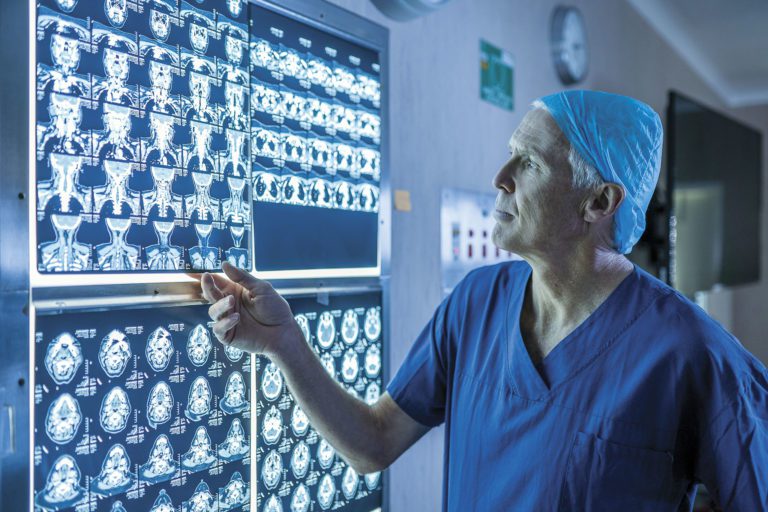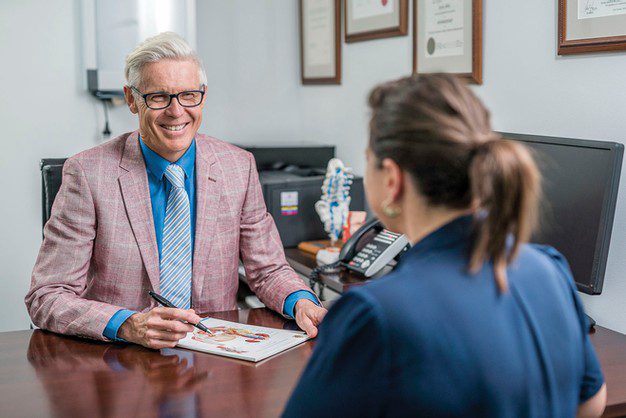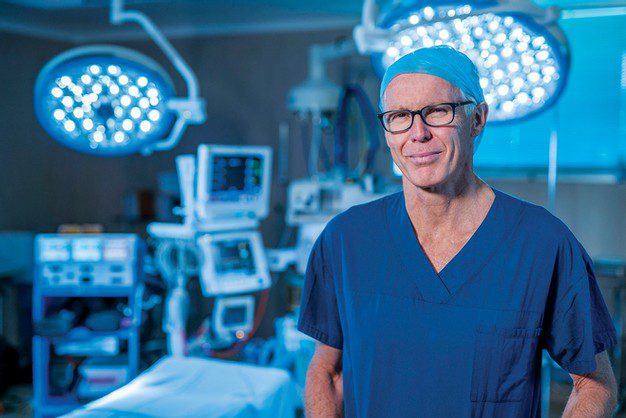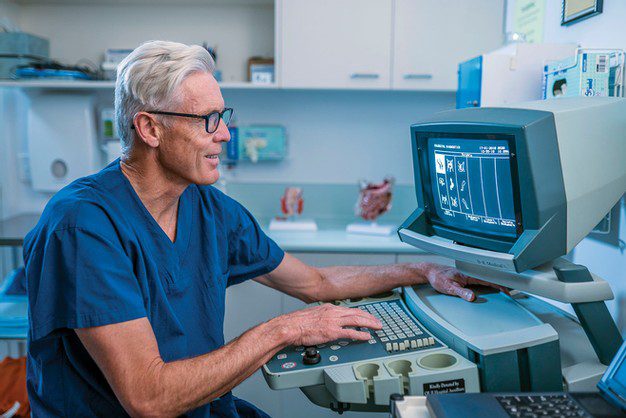PEOPLE
Getting to the bottom of it

WORDS: PHOTOGRAPHY
Meet Associate Professor Dr Stephen White, the man behind the movement of urging Australians to get to the bottom of understanding their bowels before things start to go down the toilet…
Puns aside, a staggering 95% per cent of bowel cancers, if detected early, can be cured.
“Bowel cancer is probably one of the most curable cancers in Australia,” says Dr White, founder of Core Specialist Group at Tugun.
He says it also affects an equal number of men and women, and those at greatest risk are overweight, older people with a strong family history of bowel cancer.
That said, Dr White has treated people in their thirties, with the youngest bowel cancer patient a 23-year-old woman.
He says, “Australia is one of the most ‘scoped’ nations in the world. More than half of the colonoscopies are done by gastroenterologists and the other half done by Colorectal surgeons especially when there is a need for haemorrhoid treatment or removal of polyps at the same time.”
While colonoscopies are an important part of the diagnostic process, a simple bowel screening kit should be the starting point. These kits can be purchased privately for $40 or form part of an ongoing Government sponsored initiative.
“While I’m not suggesting that blood in the stools may not be caused by something sinister and shouldn’t be ignored,” he continues. “The simple kits should be more widely promoted because they are very accurate and easy to use.”
However, these kits only apply to well people.
If you’ve seen blood in the bowl its time to be assessed by a Colorectal Surgeon.
At Core Specialist Group Dr White works in association with Dr Candice Silverman, offering patients a holistic approach to their gastrointestinal healthcare. Patients needing diagnosis for all gastrointestinal disorders are shared and treated through both the public and private hospitals. Our areas of expertise extend to cancer surgery, weight loss surgery, bariatric surgery, bariatric psychology, colonoscopy procedures, bowel incontinence testing and diagnostics, colorectal diagnostics and anorectal testing across Tweed Heads, the Gold Coast and Northern Rivers of NSW.
“There are so many people putting up with all sort of conditions, many of these patients are acutely unwell. I get so much reward from helping these people regain a normal life,” says Dr White.
As the the founder of Core Specialist Group, Dr Stephen White, is an expert in the fields of laparoscopic, colorectal and general surgery.
Dr White holds an appointment at Bond University on the Gold Coast in both academic teaching and clinical work and has practised at the John Flynn Private Hospital since 1995.
He became co-director of the Colorectal Diagnostics Anorectal Physiology Laboratory in 2003.
A colorectal surgeon, like Dr White, is a specialist in the surgical and non-surgical treatment of diseases of the colon, rectum and anus. They have completed advanced surgical training in the treatment of these diseases as well as full general surgical training. They are well versed in the treatment of both benign and malignant diseases of the colon, rectum and anus and are able to perform routine screening examinations and surgically treat conditions if required.
The long and the short you should know about the bowel
* It’s completely normal for bowel habits to vary from person to person. Some people go three times a day while others go to the toilet three times a week! No particular bowel habit is associated with bowel cancer.
* Too much fibre in your diet isn’t always a good thing. So vegies need not always be on the menu for some people.
* You CAN eat seeds when you suffer diverticulitis.
* The lower (large) intestine’s only function is to remove water and people can live a normal life without one.
* The large bowel is two metres long and the small one about eight metres.
* Popcorn doesn’t stay in your system forever – it’s full of fibre!
* Sorry to all those Italians; processed meats such as salami should be eaten in moderation, as they can be a contributing factor to bowel cancer.
* Other lifestyle factors such as drinking excessive alcohol, smoking and being very overweight can also contribute to causing bowel cancer.
* People who have had bowel cancer once are more likely to develop a second bowel cancer. Some people who have had ovarian or endometrial cancer may have an increased risk of bowel cancer.
* Most people with bowel cancer are over 50-years-old but it can occur in younger people and about 75 percent of all new cases of colorectal cancer occur in individuals with no known risk factors for the disease.
* Family history just means screening should be done earlier and more frequently.
* About 3,000 people in Queensland are diagnosed with bowel cancer every year.*
* About one in 10 men and one in 14 women will develop bowel cancer before the age of 85.
* Since early colorectal cancer often has no symptoms, it is important to have regular screenings to detect these cancers.
*Statistics from the Queensland Cancer Council.













